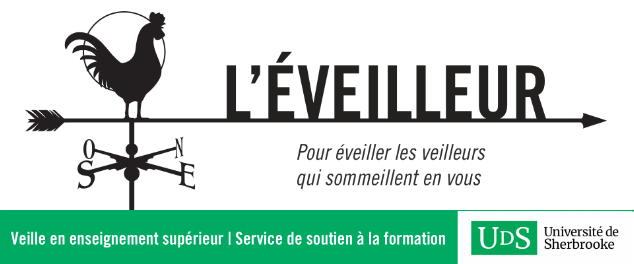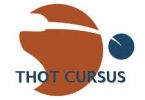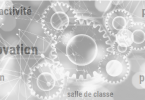Brian Mathews, doyen associé à l’apprentissage et aux services à la communauté (Associate Dean for Learning and Outreach) de Virginia Tech, a découvert le monde des hackathons lors de VT Hacks qui se tenait du 18 au 20 avril dernier sur le campus de son université. Mathews, qui blogue sous le pseudonyme “The Ubiquitous Librarian”, a pu constaté que ces événements sont un mélange complexe de vitrines technologique, salons de l’emploi, compétitions étudiantes, occasions de réseautage, mais surtout de communautés d’apprentissage. Dans un texte assez long entrecoupé de photos et d’extraits vidéo, il s’interroge à savoir s’il n’est pas en présence de la formation de demain. D’après un participant: « “College should be a four-year-long hackathon,” Hayden [un participant] declared, “it should be required that all first-year computer science students participate in at least one of these.” » (Mathews, 2014)
Il a d’abord été frappé par la motivation intrinsèque des jeunes programmeurs:
“…[M]ost college hackathons typically run from Friday at 9PM to 9AM on Sunday. This allows for 36 hours of productivity by undergraduates who are there for the fun of it. No class credit. No professors. No textbooks. No homework assignments. And while there are some prizes, such as laptops and upwards of $1,000 recognition and reputation appear to be the most valuable incentives.” [Mathews, 2014, notre emphase]
Les participants témoignent de réels apprentissages, tant au niveau du code informatique que du travail d’équipe, de la gestion de projet, du temps (et du sommeil!), des habiletés de présentation, que de l’esprit entrepreneurial. Cela a pour conséquence que les hackathons sont prisés par les employeurs potentiels comme pépinières de talents où ils sont en mesure de voir de futurs employés en action. Les étudiants voient également les représentants de l’industrie sous un autre oeil. Quelques commentaires de participants:
“I actually look up to the tech reps more than professors because they are working on the cutting edge of computing, rather than still stuck in the 80’s or 90’s like many of my teachers.”
“At hackathons you can get your hands on a lot of cool technology that you’ll never see in a classroom. And you can do whatever you want with it, there is no linear path.”
“Class can be fun and is even sometimes interesting, but at hackathons you push your limits.”
C’est probablement que les représentants ne sont pas perçus comme des enseignants, mais plutôt comme des mentors bienveillants dans une certaine « pédagogie de la collégialité » que nous décrivions dans un article en 2010.
Outre les rapports avec les commanditaires et futurs employeurs, c’est l’esprit communautaire et l’apprentissage par les pairs qui a impressionné Mathews:
« It quickly became apparent that I had I ventured into an organic community based on civility, creativity, and knowledge-sharing. While students were exhausted, they never seemed stressed. In fact, the overriding mood was one of optimism. Students were having fun doing something they loved and learning along the way.» (Mathews, 2014)
« The practice of informal mentorship was common. Hayden explained, “You don’t have to reinvent the wheel. Others will tell you what they’ve learned, what worked and what didn’t. This is helpful and isn’t something you typically learn in school. People here can warn you about what to avoid or what not to do, and prevent you from wasting a lot of time. » (Mathews, 2014)
Mathews compare cette solidarité et cet enthousiasme avec ce qui se produit en classe et doit faire des constats troublants. Les étudiants semblent apprécier l’opportunité de travailler sur des projets concrets où ils peuvent appliquer directement leurs apprentissages:
« …[In class] if material was being covered that wasn’t on a test or impacted his grade [a student said] he would tune out. He just had too many other things to do so it was a matter of efficiency. Many other students agreed. […]. On the other side I have hundreds of students from around the country working together for 36 hours straight in an arena on projects they are passionate about. “I’d rather be doing this all day than be in class,” one attendee remarked. When I asked him why he answered, “when I’m here I’m trying to solve real problems and build usable applications—in class it’s all kind of for nothing.” » (Mathews, 2014)
L’auteur ressort clairement emballé de son expérience:
“The lasting impression for me was the discernible joy of learning. This was refreshing. There is so much possibility beyond the formality of textbooks and course management systems. We can get distracted with metrics and accreditation-driven learning outcomes, but this experience was something different—it was education in a raw, powerful, and genuinely authentic form.
Students left knowing more than when they arrived. They were inspired—not by faculty or graduate assistants, but by each other. They left knowing what they could do and believing more deeply in themselves…” [Mathews, 2014]
Source: Mathews, Brian, « Are Hackathons The Classrooms Of Tomorrow? My journey to the frontier of education », The Chronicle of Higher Education, 28 avril 2014






